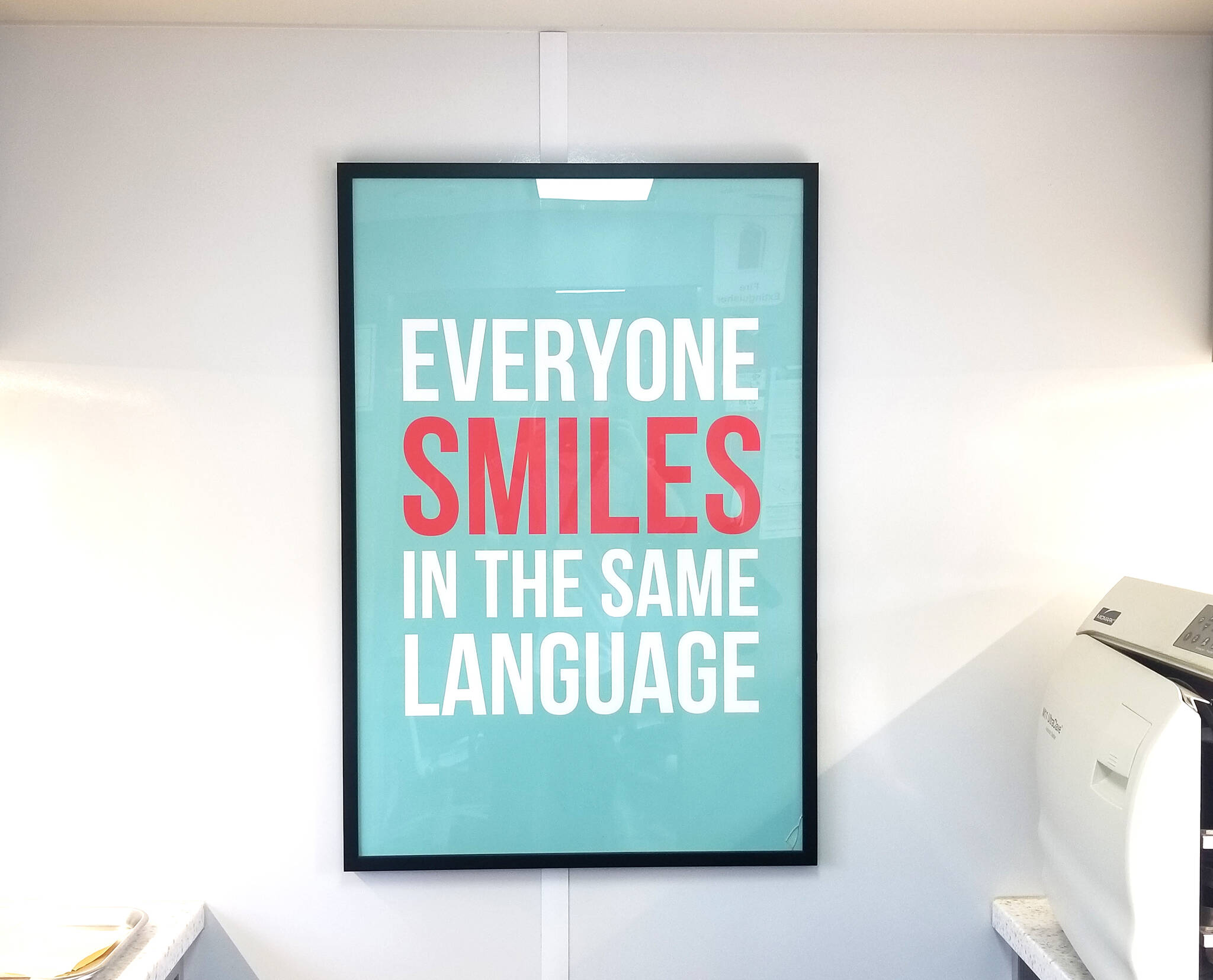For many Washington residents, dental care is nothing more than a dedicated day or two on the calendar every year where you brush your teeth extra hard and floss until your gums bleed to fool your dentist into thinking you maintain proper oral hygiene.
However, for a chunk of Washington residents that live in rural and underserved communities; that couldn’t be further from the truth. For them, dental care access is like searching for a four-leaf clover.
According to the Arcora Foundation, in 2018, just 22.5 percent of Medicaid-insured adults and 56 percent of Medicaid-insured children received some form of dental care. It can only be imagined what those numbers looked like during the COVID-19 pandemic.
That’s where the SmileMobile can be seen as a sight for sore eyes to people across Washington state who are just looking for options.
“Some of them haven’t had opportunity for access for various reasons in their life. It’s silly if you can’t get into the dentist for financial reasons,” explained dentist Christopher Delecki while working with a patient who was in for a chipped tooth.
Delecki has spent the last 15 years working with patients through the SmileMobile and works for the Children’s Hospital of Seattle where he was previously the director of the dental program for the institution. He says he typically dedicates about six weeks a year aiding with the SmileMobile, which is currently stationed in Elma until Friday, April 29.
Joining him is Monika Foro, a 22-year veteran of the SmileMobile, as well as the on-site program officer.
“As soon the notification went out that we were going to be in Elma, which was a couple weeks ago, the appointment book filled up quickly,” said Foro.
When asked about the influx and trends of patient varieties, Delecki stated that there’s a ratio of about 50/50 when it comes to helping kids and adults. He said that they’re prepared to see 12 to 14 people a day, which consists of whole families, as well as people ranging in age from 1 year olds to full grown adults.
“Originally it was 100 percent kids that we were seeing 20-25 years ago, but with a lot more community clinics that are offering assistance with ABCD programs, there has been a dramatic shift to seeing more adults with oral care needs over the last 10 years,” said Delecki.
In terms of the work that the SmileMobile provides, the mission is more than just doing a one-time oral hygiene checkup. Both Delecki and Foro explained that the biggest part of the mission is to get people referred to an appropriate dental home that they can use in the future to maintain adequate oral health.
As for the actual work done on the SmileMobile, it can vary from exams to simple extractions. They currently are not doing normal cleanings, as a COVID precaution, and are limited because of the need of laboratory work, as well as difficult extractions that require multiple visits.
“We’re mostly able to do a lot of prevention work and can help anyone as long as we have the appropriate material on the SmileMobile,” Delecki continued. “Compared to our regular dental offices, we have much more limitations based on what we can bring in the van, but also because some dental work requires follow-ups.”
Although, they don’t have all the tools at their fingertips, the SmileMobile patients are just happy to get a chance to be seen and helped. Ashley, one of the adult-aged patients being helped on the SmileMobile in Elma, who wanted to remain on a first name basis only, described her experience.
“I haven’t had a dental checkup for more than two years due to COVID shutting everything down and because there isn’t a lot of dental places in Grays Harbor County that offer dental work for state medical (Medicaid/Apple Heath),” said Ashley. “I saw that the SmileMobile was coming and when they said they were seeing adults, I knew I had to try to get in. I used to see them when I was kid.”
For individuals like Ashley, the SmileMobile means more than just an average visit to the dentist.
“It gives us an opportunity for someone with a busy life and kids to get in and be seen instead of waiting months and months to get into a dentist when a lot of places aren’t accepting new patients,” she conceeded.
For the people getting assistance in Elma, Foro explains there is a metric that determines where the SmileMobile is most needed. She says with the help of multiple agencies, they determine the percentage of kids that are on free/reduced lunches, as well as the percentage of residents that are on Apple Health.
They also set up referral programs weeks before they ever arrive to their destination. In the case of Elma, most patients are referred to dental homes in the Aberdeen and Olympia areas where resources are more prominent.
Overall, while the SmileMobile is a great opportunity to provide much needed short-term care, there is a lot of work behind the scenes to provide for those who really need it in the long-term as well. When the SmileMobile reaches the end of their stay in Elma, they will be traveling across the state to provide services for the people in Nespelem where they will look to help more in need.


